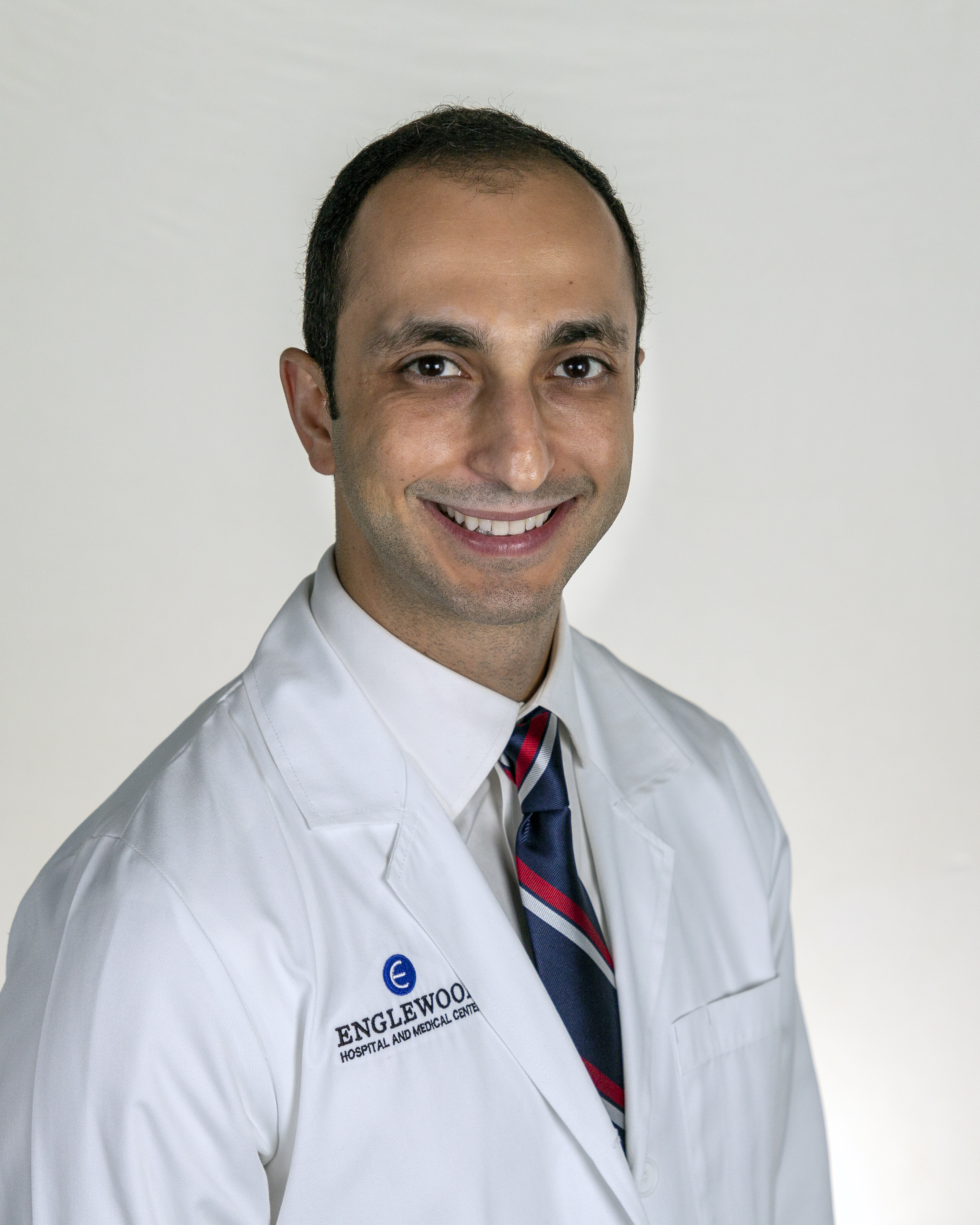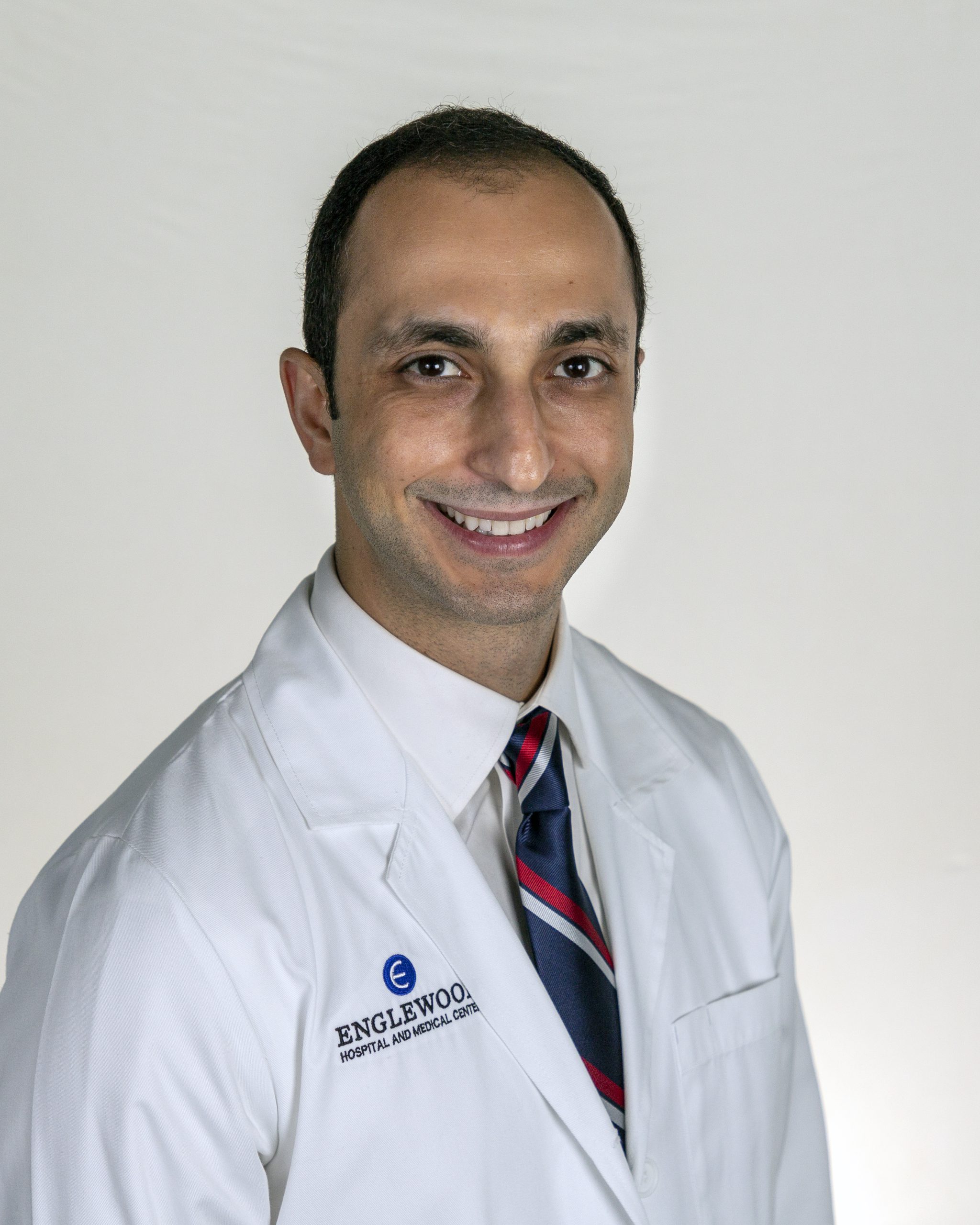
(Courtesy of Englewood Hospital) Mazyar Ghanaat, MD, recently joined the cancer team at Englewood Health. As the director of urologic oncology at The Lefcourt Family Cancer Treatment and Wellness Center, he intends to bring fresh eyes to a field that is in the midst of dramatic scientific and technological progress. Prior to coming to Englewood, Dr. Ghanaat completed a fellowship at Memorial Sloan Kettering Cancer Center.
What drew you to the field of urology?
I chose urology as my specialty in my third year of medical school. It’s a small field—people don’t usually know what it entails.
When I discovered it in my rotation, I was surprised to learn that urology is such a balanced mix of medicine, surgery and technology. I get to do clinical procedures, prescribe medicine that really helps patients and be in the operating room doing open, endoscopic and robotic surgery. I found that mix worked well for me.
What’s new in the field of urology?
Over the past two or three decades, increased knowledge and technological advancements have allowed for improved detection of prostate cancer and a decrease in overtreatment.
A major addition to the field is the multiparametric MRI, which led to the creation of the MRI fusion ultrasound biopsy technology.
And what exactly is the MRI fusion ultrasound biopsy?
The conventional systematic biopsy uses ultrasound to take 12-14 random biopsies of the prostate. With fusion-guided biopsy, patients first go in for an MRI. The radiologist reads the MRI, noting any suspicious lesions. Then when the patient comes in for the biopsy, we superimpose the marked-up MRI image onto the real-time ultrasound image. That way, we can precisely target the areas of highest interest. We typically need to take only three or four samples of the prostate this way.
We still often do the traditional, systematic biopsy, but MRI fusion considerably improves our ability to home in on significant prostate cancer.
What does the advent of the MRI fusion biopsy mean for patients?
The ultimate goal of this technology is to decrease over-diagnoses—meaning, ideally, we want to pick up only those cancers that are significant and require treatment. We’re not there yet, but that is certainly the goal with this technique.
Our hope is that, eventually, the MRI fusion biopsy will help eliminate unnecessary invasive tests and surgeries, as well as allow us to provide patients with more complete and more accurate information on their options.
Besides prostate cancer, what kinds of issues do you treat in your practice?
The field of urology is broad. In terms of urologic oncology, the top diagnoses we treat—other than prostate cancer—are bladder cancer and kidney cancer.
In general urology, we deal with problems like kidney stones and bloody urine. Some urologists focus on, and treat, female sexual dysfunction.
Though my main focus is urologic oncology I also practice general urology. I treat a lot of cases of kidney stones, which are very common—and the incidence continues to rise.
What excites you about the future of urology?
In urologic oncology, as in all branches of oncology, we’re seeing a push toward genetic testing. Genomic analysis is the future of the field. In some cancer cases, we’re focusing on immunotherapy.
Both of these fall under the category of precision medicine. They represent efforts to find the right treatment for the particular patient, rather than use a standard treatment that may not work.
In terms of technology, robotic surgery has been established for more than a decade now—especially in prostate cancer. More than 90 percent of prostate surgeries are now done robotically. This is one of my main focuses at Englewood Hospital.
What do you want people to know about your work at Englewood Hospital?
I want to emphasize to patients that if they seek treatment for a urologic issue at Englewood Hospital, we will discuss all of their options and draw on the latest technologies and methods, when appropriate. We want to help patients make the choices that will best serve their health.
For us, the doctor-patient relationship comes first. With all the advancements that are happening in the field, what we will continue to emphasize is open dialogue and the availability of accurate and helpful information for our patients.
Is there anything in your Jewish values that influences how and why you practice medicine?
Judaism gave me a strong sense of community, with an emphasis on people helping one another. This humanistic value serves me to become a better doctor. It has taught me not just to be familiar with and care for the community I serve, but to be an active member of it, as well.










